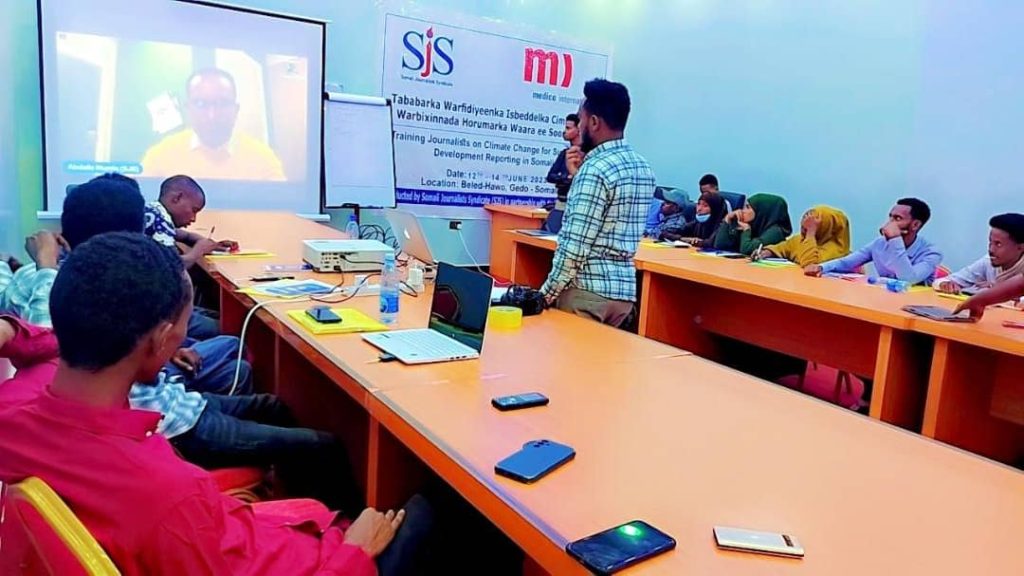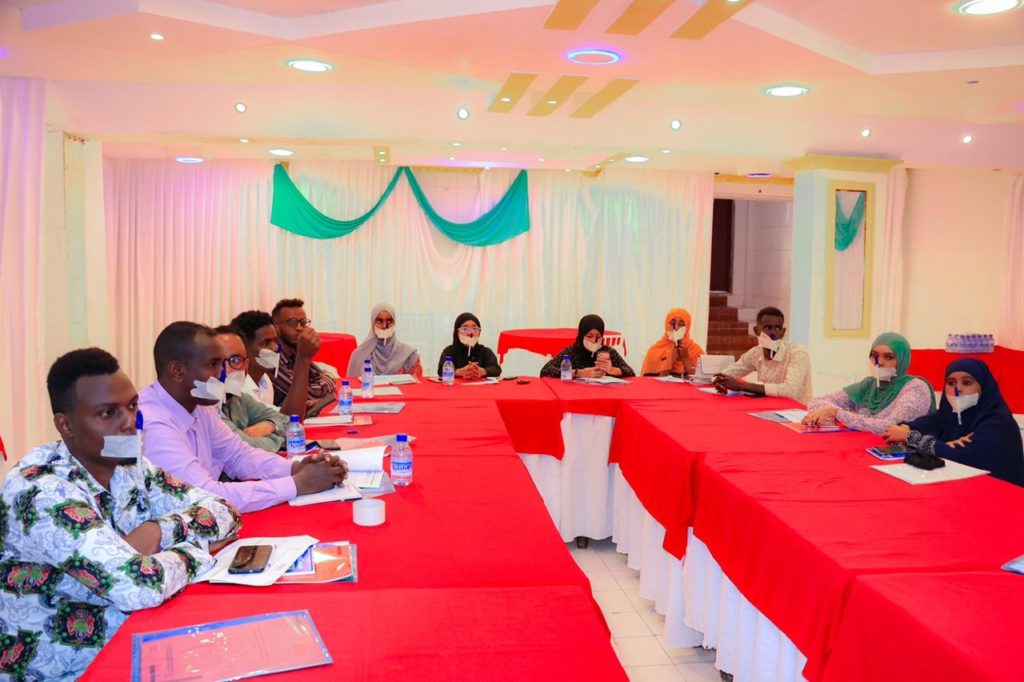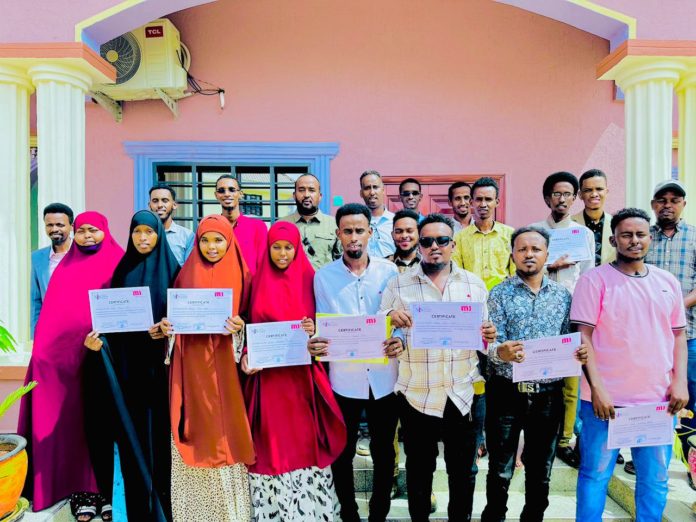MOGADISHU, Somalia 5 July 2023 – The Somali Journalists Syndicate (SJS) successfully concluded a pioneering training program for journalists on climate change reporting for sustainable development in Somalia, benefiting 30 local journalists across Somalia.
Supported by Medico International, the training aimed to empower journalists who have not had access to climate journalism training, while also addressing the lack of understanding among news editors and media managers regarding the impact of climate change on local communities in Somalia. The comprehensive training took place in Mogadishu and Gedo between February and June 2023.
SJS Secretary-General, Abdalle Ahmed Mumin, emphasized the importance of skilled journalists in accurately communicating information about climate change. The partnership with Medico International equipped local reporters and news editors with vital skills to understand climate change as a national and local issue. The objective was to enable journalists to help their communities comprehend this pressing crisis and contribute diverse and underrepresented voices to the climate change discourse.
“Journalists can play a significant role in shaping climate policy, raising awareness among local communities – including displaced persons – and assisting them in establishing mitigation and adaptation plans amid the climate crisis in our country,” added SJS Secretary-General, Mr. Mumin, “Media has a significant influence on public opinion, and how climate change issues are reported by the media and understood by the people determines the discourse and solutions offered for vulnerable communities affected by climate change.”
Somalia faces severe challenges from drought, conflict, climatic shocks, and forced evictions, all of which have exacerbated an ongoing humanitarian crisis. The country is grappling with acute food insecurity, with rural areas and internally displaced people (IDPs) at high risk of famine. Ironically, catastrophic recent flooding has further compounded the drought, impacting populations in cities like Beledweyne and Baardheere.

Participants, such as Meymun Omar from Radio Gedo, expressed their gratitude for the training, which provided them with a comprehensive understanding of climate change issues. Armed with newfound skills, the young female radio reporter is now able to strategize her daily programs to effectively inform the local audience about climate change and help them make informed decisions during crises.
“Prior to this training, the subject of climate change issues were unfamiliar territory to me. However, now I have gained profound insights and realized that as journalists, we possess the power to assist our community in making informed decisions to overcome these crises through our radio programs,” she stated.

Gedo region remains severely affected by the climate crisis, with floods claiming lives and displacing local families in Baardheere. The town of Doolow accommodates over 13,000 IDP households. Abdikafi Aaden Mohamed, a reporter from Puntland TV, highlighted the training’s focus on solutions through media reporting. He pledged to utilize the skills acquired to deliver impactful stories that shed light on solutions for local communities.
“Throughout the training, I was able to enhance my storytelling techniques and how to strategically select stories that deliver impactful narratives centered on solutions for local communities. This aspect holds utmost significance for me, and I am fully prepared to apply the skills acquired through the training,” Abdikafi added, “I extend my heartfelt appreciation to SJS and Medico International for providing me with this invaluable opportunity.”
Somalia ranks as the second most vulnerable country to climate change, with its susceptibility to extreme weather events. Political instability has hindered efforts to address the climate crisis and protect vulnerable communities. By mid-2023, it is estimated that over eight million Somalis, almost half of the country’s population, will experience crisis levels of food insecurity or worse.
Secretary-General Abdalle Mumin emphasized the crucial role of the media in improving the situation and saving lives, calling for sustained efforts and media participation.


